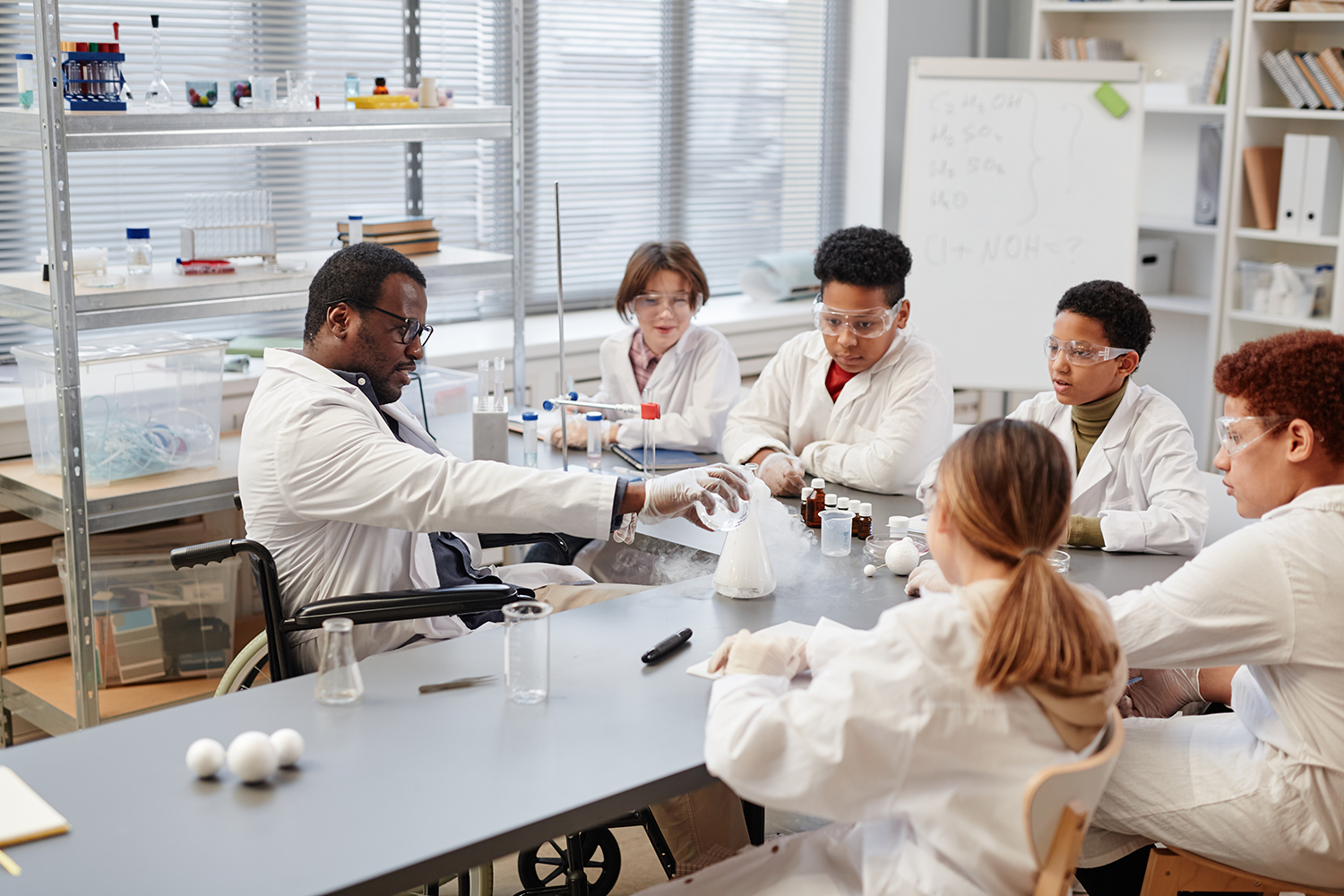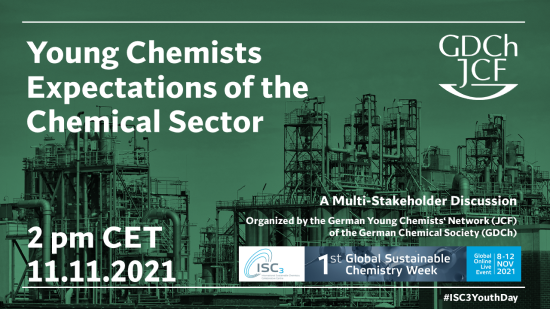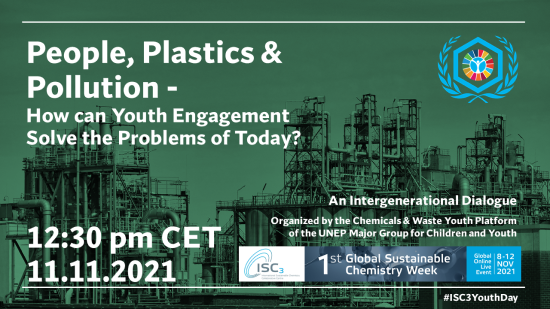Youth Engagement as a cornerstone of Sustainable Chemistry
The expectations of the young generation and their participation are of particular importance for the breakthrough of Sustainable Chemistry. Especially in times of "Fridays for Future" and matters of intergenerational justice, the voice of youth and youth organisations should be heard and taken seriously. By networking with youth organisations and strengthening the cooperation of the UN Youth Delegates for Sustainable Development (currently on the advisory board of ISC3), young people from science and civil society should be won over to the topic of Sustainable Chemistry and related scientific fields of education.



